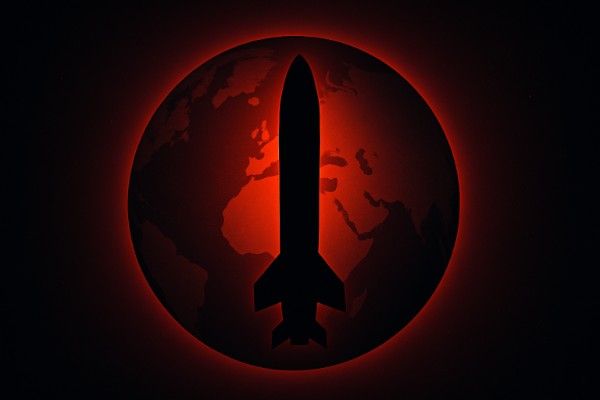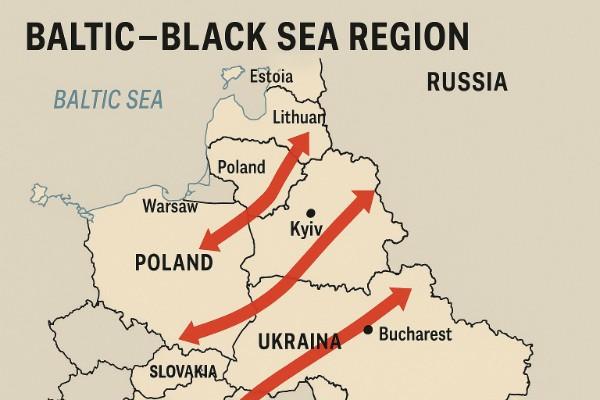Pakistan, once considered as a failed state because of its fragile economy, poor governance, political instability, extremism and terrorism. Pakistan started developing its nuclear program around 1974 under Bhutto’s rule when India tested its first nuclear test in 1974. At that time developing nuclear arsenals was not as easy as it were because of strict restrictions and formation of IAEA. But Pakistan successfully developed and tested its nuclear weapons in May 1998 as a counter reply to its closest adversary India who also undertook its second nuclear test in May 1998 before Pakistan.
A lot of debate and speculations were roaming around to dismantle Pakistan’s nuclear weapons as it was considered as a threat to global security and peace because of its poor economic conditions and rise in terrorism activities within state. The threat was that Pakistan’s nuclear arsenals could get in hand of non-state actors which could be a serious threat for international security. Both states served under sanctions imposed by US under Clinton administration but never agreed to be a signatory Nuclear Non-Proliferation Treaty.
Table of Contents
TogglePakistan and War on Terror
In September 2001, series of attacks were carried out on World Trade Center in USA that killed thousands of innocent people. The attacks were carried out by the Islamic Militant group known as Al-Qaeda which was based in Afghanistan. This event shocked the whole world as it came as a surprise for the Unipolar superpower USA. The Bush Administration agreed and ordered to invade Afghanistan for its new War against Terror. The USA alongside NATO forces invaded Afghanistan and a new world order was come into subject.
Pakistan a new nuclear weapon state and almost a failed state became an important ally of US and NATO forces for its fight against War on Terror. Pakistan who had been a long supporter of the Taliban was forced to fight against them by the West but it accepted to be an ally of West due to economic reasons. Pakistan created and trained Mujahideen’s who fought against the Soviets in 1979 Soviet-Afghan War was financially and militarily supported by USA and Saudi Arabia for its containment policies, proved to be a successful guerilla warrior as Afghans forced Soviets out of Afghanistan. USA provided Pakistan with huge financial and military aid but cut it off soon as the war was ended in 1989. Pakistan supported the Mujahideen’s during the Afghan Civil War and accepted the first Taliban regime in 1996 alongside Saudi Arabia. But after the 9/11 it becomes an ally of US against Taliban. Pakistan receives millions of economic and military aid from the US once again but it covertly supported the Taliban’s against the US because of its longstanding relations with the Taliban and a proxy war against its arch rival India in Afghanistan. (Katz)
Pakistan become a frontline fighter against terrorism but also become a frontline target of the terrorists. The migration of Afghan Refugees and Taliban’s caused severe economic and security conditions for it as the rate of suicide bombings, target killing, human rights abuses and violations were started to risen throughout the state.
The Sharia Law was imposed in different regions of KPK province and FATA where girls were banned to attend school and other Islamic laws were regulated. The state of Pakistan started military operations in KPK and FATA against militant organizations such as Tehrik e Taliban Pakistan (TTP) and Tehrik e Nifazat e Shariat e Mohammadi (TNSM) to regain its control over lost territories. These military operations became successful as Pakistan Army easily regained the control over the lost territories which showed the supremacy of armed forces against the militants. Pakistan lost millions of rupees and thousands of innocent people lives against war on terror.
On the other hand, Pakistan covertly backed Taliban and India backed the government in Afghanistan was indulged in proxy war against each other to get an upper hand in Afghan internal matters and regional supremacy.
Withdrawal of US from Afghanistan and consequences
After two long decades of War on Terror and America’s longest war ever was seemed to be coming to an end under the President Trump administration. Finally after the US elections in 2020, the newly elected President Joe Biden announces of withdrawal of US troops from the Afghanistan marking an end to its presence in Afghanistan and to War on Terror.
Soon after the withdrawal of US and NATO troops, the battle between the Taliban’s and Afghan forces erupted in a flash. The Afghan Forces tried to hold the territories which were under their control but could not hold longer and surrendered back and forth which resulted in a fantasy for the Taliban’s.
US had spent around $2 Trillion on Afghan forces training and equipments but all resulted in vain in front of the Pakistani trained Mujahideen’s. It took only 11 days for the Taliban’s to take control of the Capital Kabul. The Taliban entered the capital without firing a single bullet on 15th August 2021 and the President Ashraf Ghani left the state helpless on its own in the hands of Taliban. Thus the Taliban’s are once again back in the power, thanks to their old covert ally Pakistan who supported them long because of its rivalry with India for the supremacy in the South Asia region.
Pakistan’s Future and NPT
Pakistan as always in the midst of crisis once again like FATF grey list, fragile economy, hybrid politics, weak law enforcement, rising extremism, unemployment and poverty etc. Realistically, the survival of state seems impossible but the nuclear weapons are guarantor of its survival. Pakistan had been heavily relied on foreign aid and loans from the IMF, China, Saudi Arabia and USA. The state is yet to stand on its own and fulfill the real meaning of a state.
After the war on terror, the global focus was shifted from NPT to WoT and Pakistan as an immediate neighbor to Afghanistan was a key player for US in this war. As a result, the focus was shifted away and faded. But now the War on Terror had been over and the global focus is shifting gradually from WoT to other international goals.
Pakistan’s Case
Is this the time for NPT to put pressure on Pakistan to join it? Are major powers will pressurize Pakistan to join NPT? Is Pakistan going to join and dismantle its nuclear arsenals or Pakistan will hold until its rival joins the NPT too? (Chakma, 2011)
There had been many rumours and speculations about the Pakistani nuclear bomb as some called it an Islamic Bomb or some called a threat to world peace and security because of Pakistan history with the non state actors and internal scenarios. Nevertheless, the state have proved everyone wrong until now as there have been no threat shown to world peace by its nuclear and no report of its nuclear getting into hands of terrorists. Despite the entire crisis, Pakistan has shown its reliability and responsibility as a nuclear power of being a non-offensive and safeguarding its nuclear assets and interests. The state has proved that it is a responsible state like all other nuclear powers. Pakistan has clearly indicated ‘No first use and no use again non-nuclear weapon states’ in its nuclear policy.
NPT is considered a treaty which has been biased and discriminatory against some nuclear states like India, Pakistan, Israel and North Korea. These states have shown that they are capable enough of protecting their nuclear weapons like the other five nuclear states which are recognized by the NPT as nuclear weapon states. NPT should accept Pakistan as a nuclear state or it will seems difficult that it will join NPT and will dismantle its nuclear weapons until its arch rivals India do so. The policy of Pakistan for becoming a nuclear weapon state was the reason of Indian first nuclear test in 1974 and becoming a nuclear state which was a threat to the survival of Pakistan.
Conclusion
No matter what are the conditions, Pakistan is unlikely to join the NPT before India and it will not dismantle its nuclear weapons which took almost 3 decades to complete. Pakistan has proved its responsibility of being a nuclear state and NPT should accept Pakistan as a nuclear state like other five recognized nuclear weapon states. NPT should review its discriminatory policies and propose a new charter for states which have proved the credibility as a responsible nuclear weapon state otherwise no state is likely to join it.
Bibliography
- Chakma, B. (2011). Politics of Nuclear Weapons in South Asia. Farnham: Ashgate Publishing Company.
- Katz, M. N. (n.d.). Pakistan and the “War on Terror”. Retrieved from Middle East Policy Council: https://mepc.org/commentary/pakistan-and-war-terror
About the Author:

Hassan Shahi is graduated in International Relations from University of Gujrat. His areas of focus is South Asian Security and Relations.












